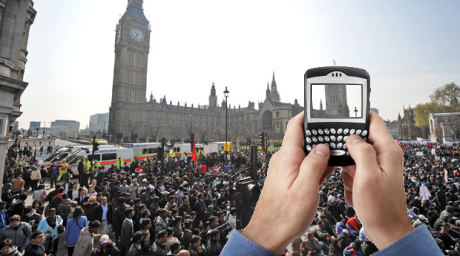Facebook and Twitter 'help to politicize' today's youth

The web, social networking in particular, is helping to politicise younger people, according to the University of California's Humanities Research Institute.
The research studied over 2,500 members of the Generation Y over a number of years and found that based on social media updates, younger people are more likely to engage with their government if given the accessibility to so.
While the study shows that today's youth in general are disengaged from the traditional forms of political news, analysis and government, they engage far better with social networking, allowing an outlet for their thoughts and opinions.
Arguably, it goes even further than that.

But then again, with social media bantering left, right and center during anything politically related, combined the vast majority of the Generation Y engaging with their own social media accounts, it isn't surprising that young people are developing their political knowledge and opinions faster today than a generation ago.
There are two elements of socialisation to consider. The primary socialisation of young people today is where views are formed and developed based on the accounts of their parents or guardians. Secondary socialisation is where those are challenged by peers and developed further into more stable opinions and grounded theories.
Nowadays, secondary socialisation is manipulated further by social media and interactive online opinions to allow a better dialogue for younger people to air their views.
Only in recent months can we see the web politicising young people from street protests to full blown revolution.
Facebook and Twitter are not necessarily a means to an end, but nevertheless are significantly important to younger people, as a viable way of expressing their views either in a closed arena or on a global level.
But with a wide collection of political views in the closed environment such as Facebook, the study found that the the echo chamber effect is negated and that social networking tools can be a way to legitimately forward ones views to challenge.
Related content:
- London on lockdown: How social media spurred student protests
- Egypt 'shuts down Internet' amid further protests; Facebook web traffic drops
- Egyptian president ignores social media protesters: A bloody coup is brewing